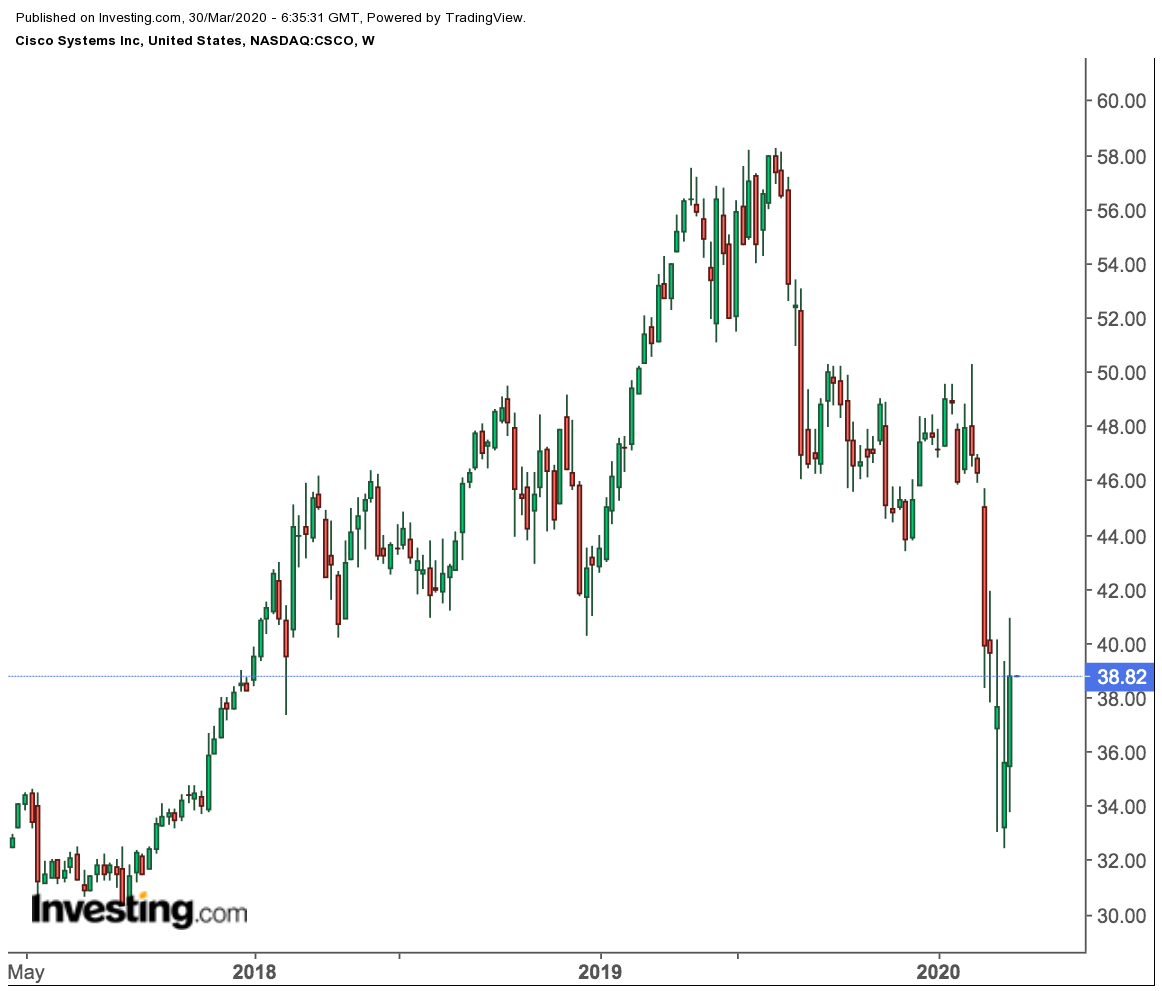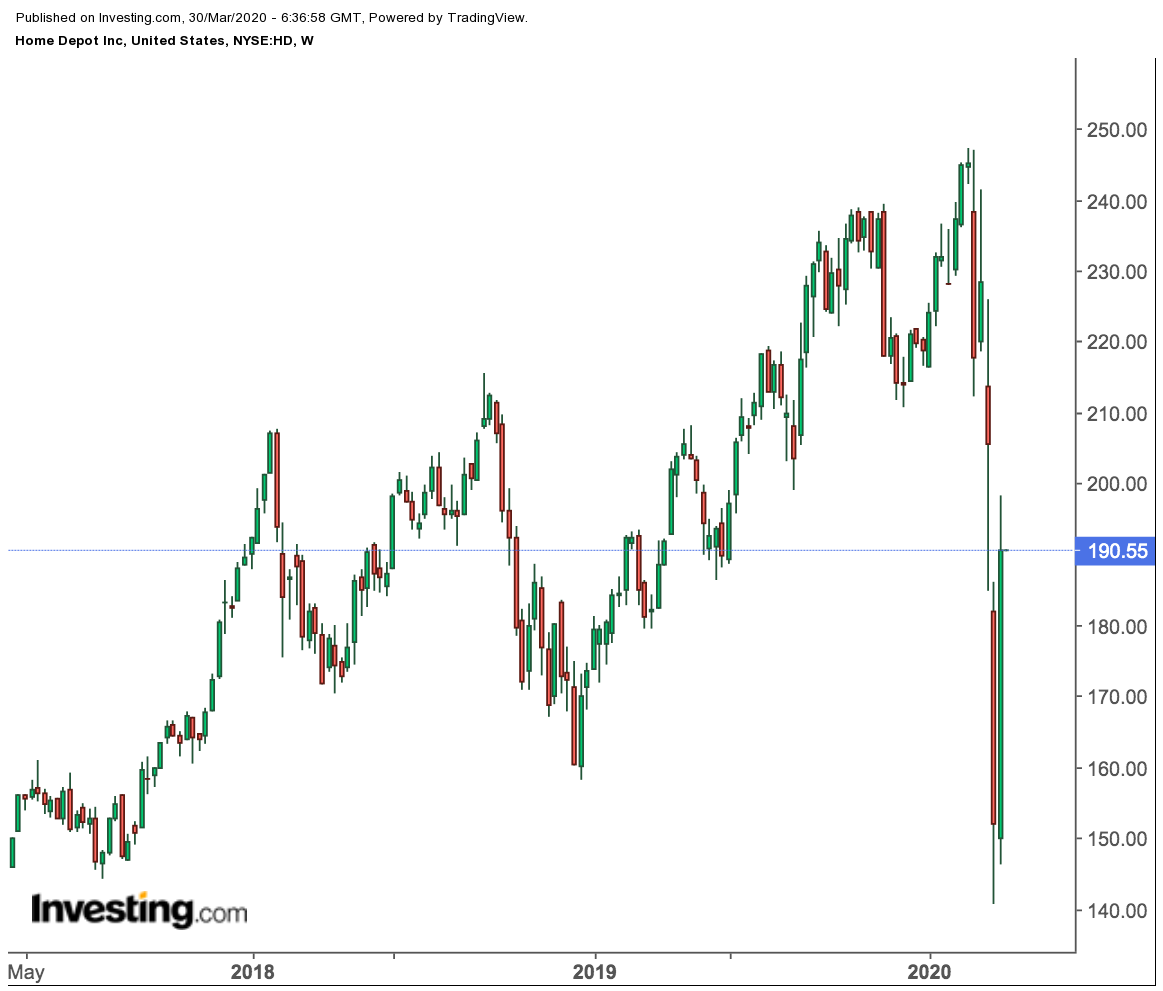The current million-dollar question: after the massive sell-off over the past four weeks, when will the market finally bottom out?
The answer should be obvious: nobody yet knows. The rapid spread of the COVID-19 pandemic has created havoc for markets across the world and there's no sign yet that the end is even in sight, let alone imminent.
But some analysts believe the bottom for markets has already been reached as globally, governments have unleashed their monetary and fiscal power to fight the coronavirus-triggered recession. Indeed, Credit Suisse recently said:
“In light of the announced U.S. stimulus package, we think that the risk of a very bad economic outcome has come down significantly.”
“As investors will rarely buy the bottom in volatile markets such as these, the Investment Committee feels that there is merit in being an early mover rather than wait until a market bottom has become apparent for all.”
Still, there are analysts who believe that there is more pain ahead as companies lay off millions of workers, wealth gets destroyed, and the disease continues to spread. After last week’s biggest three-day rally for the Dow in almost 90 years, Barclays said a bounce like this is usually not sustainable after a sharp rout.
Who's correct? There are still too many unknowns to be able to answer that question. In the meantime, we feel the safest strategy for investors would be to focus on stocks that are likely to ride through both short- and long-term weakness. And to be ready to buy them when the bottom seems to be in sight. We're eyeing two such stocks which we believe would work well for long-term investors.
1. Cisco Systems
Cisco Systems (NASDAQ:CSCO) is a cash-rich technology player which is well-positioned to rebound after the current declines. Our optimism comes from the company’s solid global position as a network-equipment supplier. Shares are down 2.8% in the past month vs the Nasdaq 100's 10% plunge. The stock closed Friday at $38.82.
Cisco is the world's biggest maker of routers, switches and other gear that companies use to connect computers While the cyclical nature of this segment of the hardware market could continue to put a drag on Cisco’s stock performance, it’s hard for companies to delay their investments indefinitely for products that are so crucial for their tech infrastructure.
Another reason we're fairly bullish about Cisco is the company’s aggressive diversification drive away from hardware to a software driven model within new high-growth areas of the market, such as cybersecurity and applications.
Under Chief Executive Officer, Chuck Robbins, Cisco has made a string of acquisitions to build a software and services business. Last year, Cisco bought closely held Voicea, a maker of software that provides real-time transcription and voice search capabilities. In July, it agreed to acquire Acacia Communications for about $2.6 billion, gaining chips and machines that help translate optical signals into electronic data.
These growth initiatives, coupled with the company’s dominant position in the Americas region in which it generates the majority of its sales, have positioned the company to outperform when the macroeconomic risks reduce.
In addition to growth, Cisco is also a reliable company that pays regular dividends, making it an attractive option for those seeking to earn a growing income. With its current annual yield of about 3.55%, investors are getting $1.44 a share payout, which has risen 14.20% per year during the past five years.
2. Home Depot
Home Depot Inc (NYSE:HD) is one of those retailers that are best-positioned to survive in a recession after the coronavirus pandemic. The reason: HD management figured out early on how to thrive in a challenging environment.
With 90% of Americans already living within ten miles of a Home Depot store, rather than opening new locations, the company instead focused on upgrading its existing store base with better technology and e-commerce fulfilment capabilities.
Just before the coronavirus pandemic hit, HD was reaping the reward for its $11-billion spending to modernize the company’s stores, upgrade digital options and enhance offerings for its key trade customers. Armed with these upgrades, there is a good chance that HD’s same-store sales will revive quickly in the post-crisis era.
Another important move that’s going to help Home Depot thrive once the COVID-19 outbreak is contained is the company’s diversification in areas which are less dependent on the strength of the housing market.
According to analysis in the Wall Street Journal, housing starts are still less than half of what they were at their peak in early 2006, but Home Depot’s annual sales have risen by about 30% since then.
As well, this retailer is a reliable dividend payer. Its quarterly dividend has expanded 380% over the past decade and, with a healthy payout ratio of 42%, it has much more room to grow them. Home Depot stock currently yields 3.07%, paying $6 a share annual dividend. Trading at $190.55, the shares have dropped 12.5% in the past four weeks vs almost 18% for the NYSE Composite.
Bottom Line
Investors should use this downturn to identify businesses with higher-resilience and strong cash flows that would be able to sustain their dividends even in an adverse business climate. Cisco and Home Depot are two stocks that fall into this group. They are attractive again after this steep sell-off and they could become even more appealing if there's any additional bad news.
